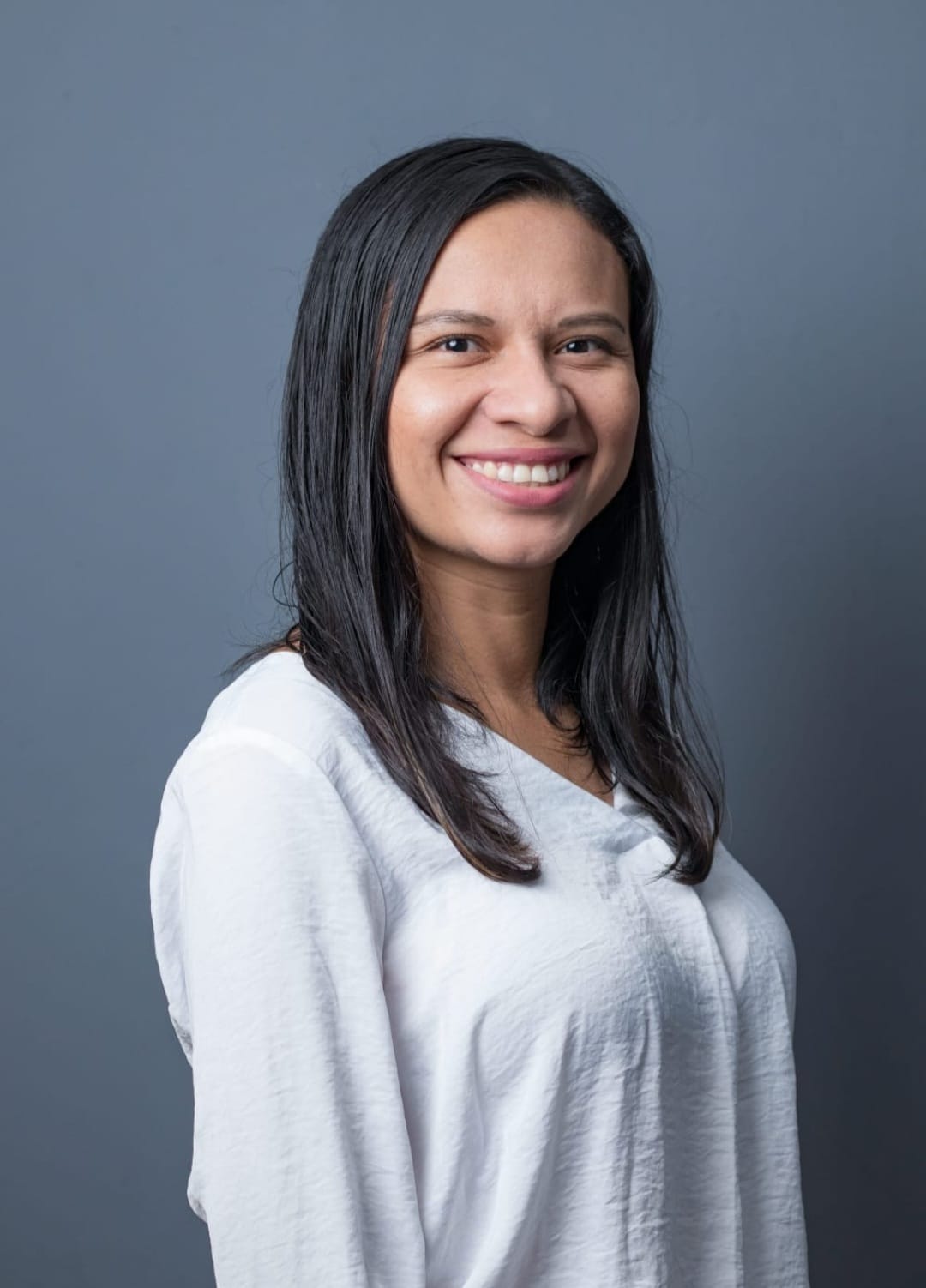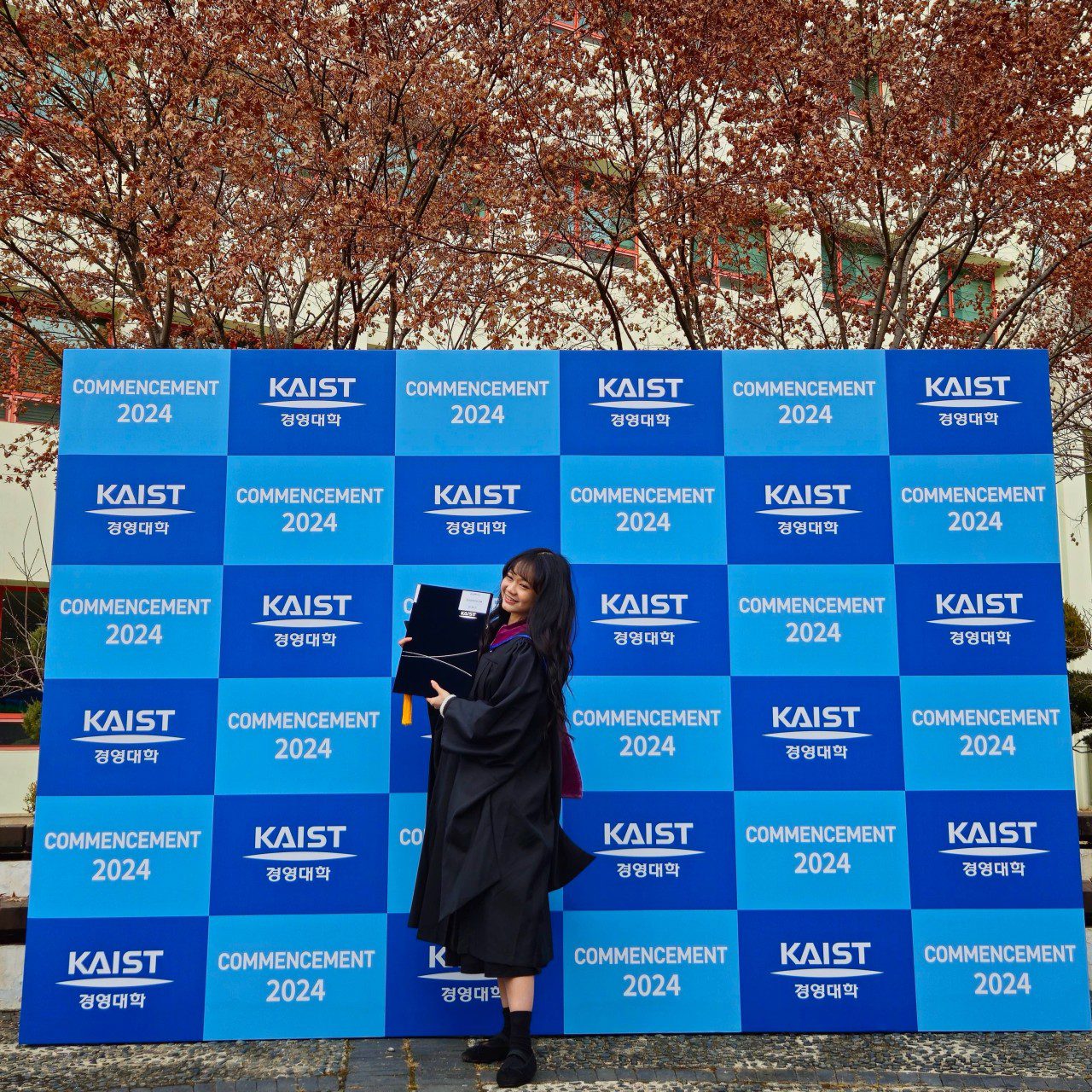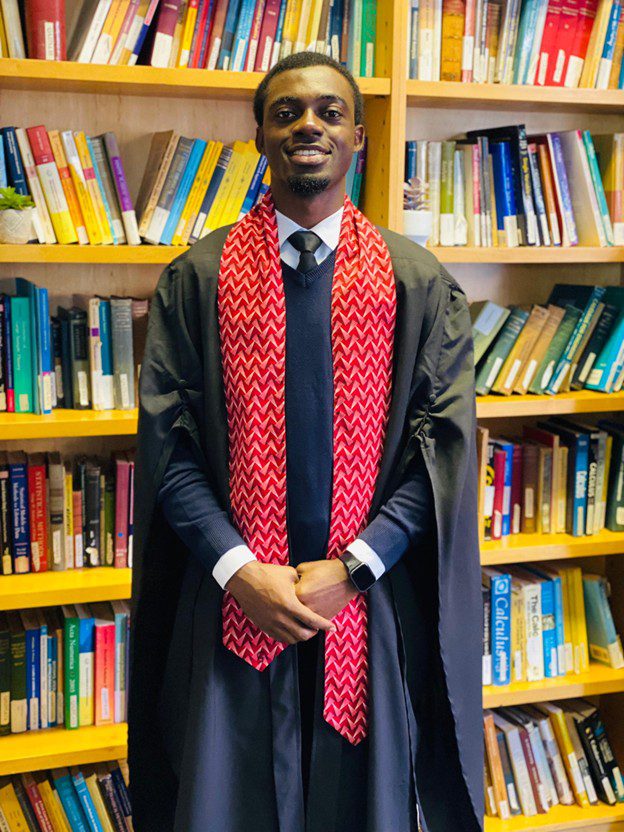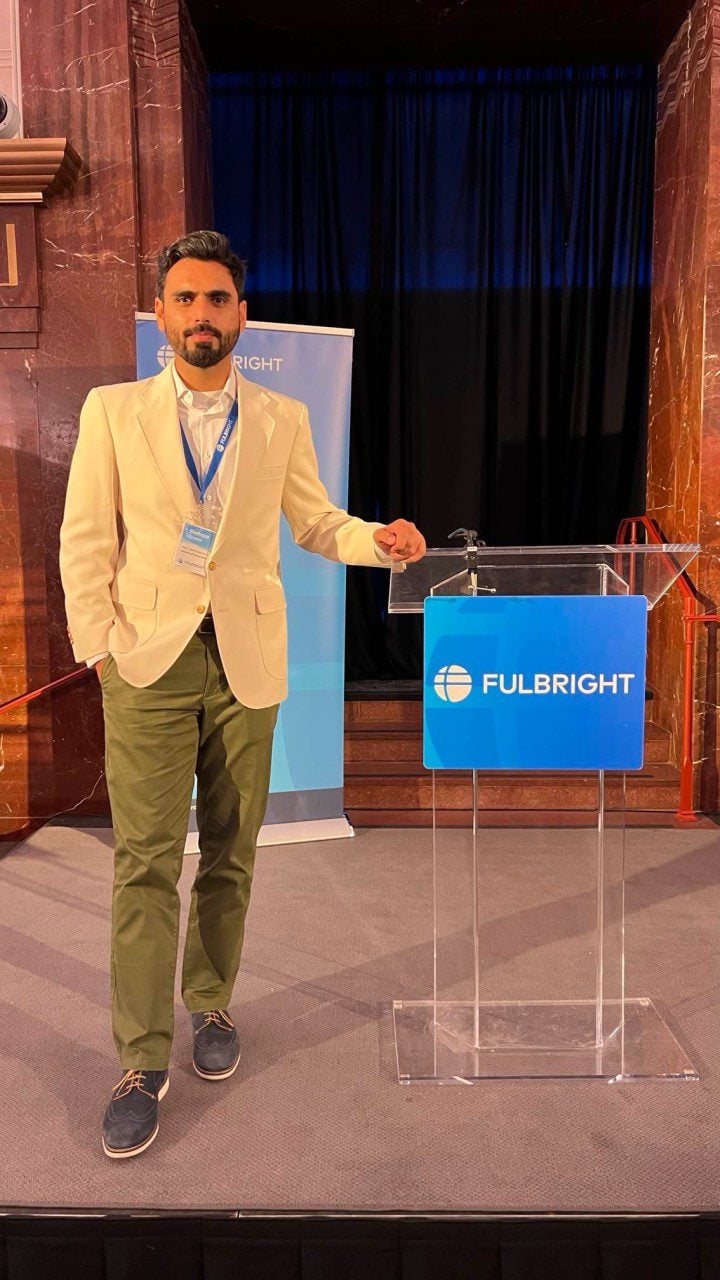How a Colombian Dietitian Nutritionist Secured the Fully Funded Hubert H. Humphrey Fellowship for Professional Development in Public Health Policy and Management at Emory University
University: Emory University, United States
Degree: Public Health Policy and Management (Hubert H. Humphrey Fellowship, non-degree program)
Previous Education: B.Sc. in Dietetics and Nutrition, National University of Colombia, Specialization in Food and Nutrition in Health Promotion, National University of Colombia
Scholarship: Hubert H. Humphrey Fellowship (Fulbright Colombia)

The Journey
Hello, I'm Lina Mairet Solano Carrillo, I was born in Fonseca, Colombia (South America), this is a small town that is in the north of the country bordered by the Caribbean Sea. In Colombia there are not the 4 seasons and due to the different altitude of each region, the different temperatures of the thermal floors predominate from warm (my region) to glacial zone.
I am a Dietitian Nutritionist, and I specialized in Food and Nutrition in Health Promotion at the National University of Colombia, I have more than 13 years of experience working for children in my department La Guajira, where I have concentrated mainly on community work with the indigenous Wayuu population (it is the largest indigenous group in Colombia). Since I have been aware I have been studying and preparing myself to improve myself and to go beyond the limitations that may arise, when I was finishing high school I was looking to enter university to study a career that was very related to my values and desires for service, I was always clear that I wanted to work in the area of health, and that's how I found the Nutrition and Dietetics career. In La Guajira more than 45% of the population is indigenous, we have the largest indigenous people in Colombia, the Wayuu, these communities are in the rural area and lack all basic needs, the territory is very dry, desert, they do not have access to safe water, nor easy access to health and education services. Since my adolescence, knowing all these needs moved my heart to want to work for them, when I entered the National University of Colombia in the capital Bogotá, the first thing they asked me was what I wanted to do when I finished my degree, and without hesitation I answered, return to my land and work for mine, and that is what I did, I graduated in December 2009.
Scholarship Details
An American friend who during the first semester of 2023 was doing his internship in pediatrics residency with a community focus at the Foundation where I work, sent me an email with the link to Fulbright Colombia and the different scholarships offered in my country, this is how I began the review of the terms and conditions of the scholarship and the steps to follow to make the application effective.
The Fulbright Program is an educational aid program sponsored by the U.S. Department of State's Bureau of Educational and Cultural Affairs, foreign governments, and the private sector. This is how my country has had the Fulbright Colombia Commission since 1957, which every year seeks leaders in the territory who contribute and want to continue working from their professional area to the growth, transformation and development of their communities and the country. They do this through the Hubert H. Humphrey Scholarship for Professional Development, which offers professionals from more than 160 countries around the world an experience of enrichment and academic-professional development in the United States for one academic year, and who must have an outstanding professional career and substantial experience in their field, in addition to a high capacity for leadership and social commitment. This scholarship has 4 thematic lines that are Human and Institutional Development, Rights and Freedoms, Sustainability and Thriving Communities, within the latter is my study program which is Public Health Policy and Management, at Emory University in Atlanta. Today I am proud to say that I am 1 of 142 Hubert H. Humprhey Program Fellows from around the world in the 2024-2025 cohort. The scholarship is for one academic year not leading to a degree since its focus is to strengthen the professional development of the scholarship recipients and the sponsor covers all personal and educational expenses during this time (scholarship amount $77,250). For a person to apply, they must have a university professional degree from a program with a minimum duration of four (4) years, have at least 5 years of experience in their professional field and have a current employment relationship.
Educational Background
After receiving my undergraduate degree in January 2010, I started working at the hospital in my hometown. As my first work experience, this opportunity challenged me to approach chronic non-communicable diseases more thoroughly from a nutritional perspective. It also introduced me to the realities of acute malnutrition.
Eight months later, I moved to Riohacha, the main city, to work with a foundation that ran food security programs in indigenous communities. My role required me to spend six days a week in rural areas, conducting home visits, evaluating the nutritional status of the entire population, leading healthy eating workshops, and supporting the cultivation of native foods. This program aimed to combat acute and chronic malnutrition by reviving ancestral knowledge, such as traditional farming methods and proper food preparation, while also promoting exclusive breastfeeding.
I worked there for more than three years, but I felt the need to deepen my knowledge to make a greater impact. I returned to Bogotá to study a specialization in Food and Nutrition in Health Promotion at the National University. I wanted more tools to enrich my professional work, as I had already realized that public health was my true passion.
After completing my specialization, I returned to La Guajira and began working with another foundation focused on reducing high maternal and infant morbidity and mortality rates in indigenous communities. Over time, I became the nutrition leader, responsible for developing projects on food security and health promotion. These initiatives addressed social determinants related to chronic and acute malnutrition through various partnerships with national and international organizations. A key achievement in this role was leading the first intercultural breastfeeding room in La Guajira, where knowledge-sharing sessions promoted exclusive breastfeeding for six months and complementary feeding until at least two years of age.
Since 2015, I have been evaluating the improvement of exclusive breastfeeding rates in Wayuu indigenous communities using a knowledge-dialogue methodology. These sessions bring together women of childbearing age, pregnant women, grandmothers, midwives, and men to discuss topics in their native language, Wayuunaiki. This approach blends traditional wisdom with Western knowledge, fostering collective creation to strengthen breastfeeding practices.
Working in nutrition in our region has always been a challenge. Cultural differences, lack of resources, limited government support, and the difficulty of accessing remote areas pose constant obstacles. However, the most valuable lesson I have learned is the importance of listening before offering solutions. I believe that progress and development come from collective work and community-building, where everyone has a role to play. This philosophy guides my work with indigenous communities and is why I now feel like a part of them.
How Did You Prepare to Apply for the Scholarship?
The first step is to apply on the platform where I had to submit all my personal, academic and work information, the resume, I also had to submit 4 essays where I demonstrated my leadership capacity, describe how the result of this scholarship could positively impact my community and the country, demonstrate my commitment to public service throughout my professional life and how it has impacted my community, and finally to demonstrate how in difficult situations that I have experienced at a professional level I have been able to overcome and with determination solve the problems I faced. In order to upload the application I had to first take an English proficiency test (TOEFL or IELTS) that certified that I had the minimum level required to continue, which I took in July obtaining the necessary score and thus on August 3, 2023 I was able to upload my application for the scholarship. This application was subjected to a technical evaluation that received a score and according to this it was determined who would continue to the next stage of interviews and who would not.
When I obtained a good score in the application, I then went through a thorough process of interviews and exams in Spanish and English, which I passed little by little, until I was on the list of the 8 people selected as candidates for the Scholarship. In one of those many interviews I ventured to speak to the evaluators in "Wayuunaiki" the mother tongue of the Wayuu, which I have learned during these years of working with the indigenous communities, and they were surprised, so I quickly explained to them the meaning of what I was saying and the language in which I spoke.
Finally, the 8 applications from Colombia were already on the desk of the United States committee in Washington D.C., and it is here that I was one of the 2 people from Colombia chosen to carry out this prestigious scholarship, on February 28, 2024, I received this great news.
For this scholarship, you must obtain these scores at least in the English exams: TOEFL iBT 42 and IELTS 5.0.
Fellows with TOEFL iBT test scores between 42 and 61 will have an intensive English course of up to four (4) months before starting the Humphrey Program. The participation of the scholarship holder in the course will be mandatory.
In my case, 10 months before taking the English test, I started classes with a tutor in a small group and the material provided by ETS on how to prepare for the TOEFL iBT were crucial for me to obtain the required score.
What Do You Think Made Your Application Stand Out?
I think that my application stood out for the mixture of everything, my long professional career working for vulnerable populations in my country on issues so important for public health is something that could help me to have the attention of the evaluators and also my vocation for social service and constant work in my area, in addition to showing the great interest I have always had to go further and to continue investing my life to achieve a better society in my region.
What Would You Have Done Differently if You Had to Go Through the Process Again?
I think I would have spent more time learning English, I would not have postponed studying this second language so much, since being here I have realized that great opportunities can be lost if you do not have a great command of English. I would also trust myself and my abilities more, because during the process I had many fears and pessimistic thoughts that made me think that it was not enough to get this scholarship, but it was not like that because at the end of it all I did have all the capabilities to be here today.
What Advice Would You Give to Those Looking to Apply for a Similar Scholarship?
I tell them not to be afraid to dare, to prepare themselves a lot in their field and not to postpone learning a second language, to trust in their abilities and that if they fail on the first try, they should try again as many times as necessary. This type of opportunity is within everyone's reach, and it is something that we must take advantage of because it will undoubtedly change our lives.
Want to submit your
scholarship journey?
Submit Your Story Here!
More Scholarship Recipients

My name is Vania Estrellita Soegiarto, and I am from Indonesia. I pursued a Finance MBA at KAIST Business School in South Ko .... Read more

Hello, I’m Toyeeb Olamilekan Abubakar from Nigeria. I earned a Bachelor of Science degree in Statistics from the Universit .... Read more

My name is Shehryar Jafar, and I’m from Karachi, Pakistan. I’m currently a PhD student in Electrical Engineering at the .... Read more

Leave A Comment